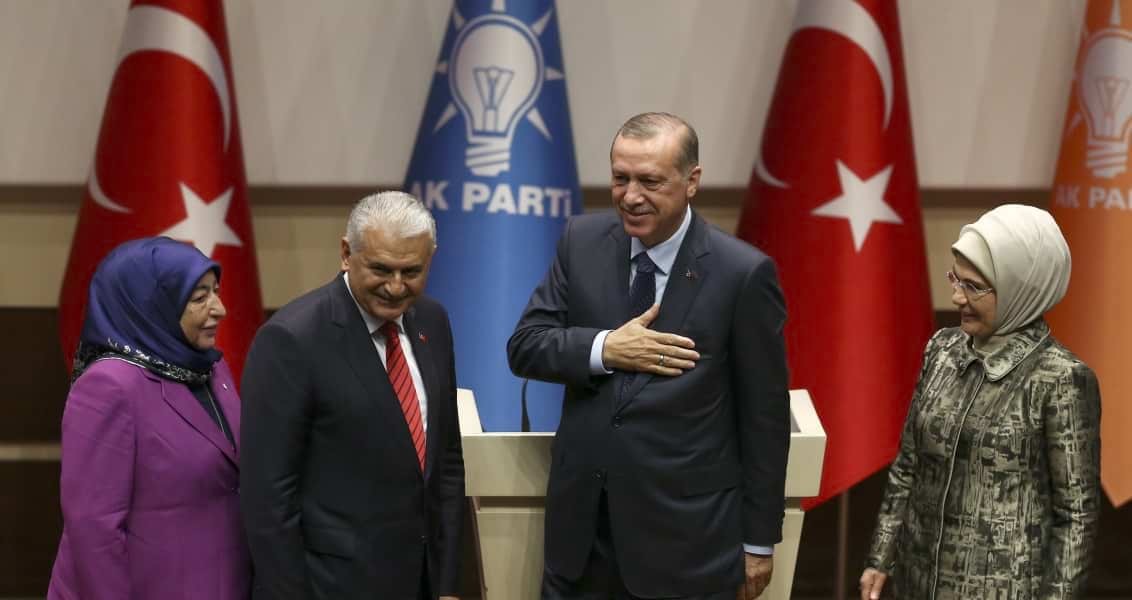
Domestic Consolidation, International Pro-Activism
With the consolidation of the presidential system, international observers might brace themselves for a fast-thinking, fast-acting Turkey
Share
The changing nature of the global political economy in the aftermath of the economic crisis triggered trends toward intensive international competition, neo-protectionism, trade and currency wars, as well as rising far right and xenophobic political movements in the West. As far as emerging powers such as Turkey were concerned, this new global conjuncture necessitated a consolidation of domestic governance structures for swift and effective decision making, as well as a streamlining of bureaucratic institutions to face the challenge of new international competition in collaboration with the private sector and civil society.
Turkey lost valuable time in this context between 2013 and 2017 amid various political crises ranging from the Gezi incidents to the foiled coup of July 15, 2016, delaying institutional adjustment to emerging global realities. On the side of domestic politico-bureaucratic consolidation, Turkey's restructuring gained speed following the prevalence of the "yes" vote in the critical constitutional referendum on April 16. The gradual transition to a presidential system has already started with President Recep Tayyip Erdoğan signing his membership form for the Justice and Development Party (AK Party) this week in a quite emotional atmosphere.
This initial step in normalizing Turkish politics was extremely important as it represented the end of an unrealistic cliché and decades-long hypocrisy in the form of a "politically impartial president." In Turkey's political history, the Office of the Presidency was conventionally placed "above daily politics" to constitute the focal point of bureaucratic tutelage over elected politicians. None of the previous presidents have been impartial, most of them implicitly maintaining their links and intervention channels to political movements (or institutions such as the Kemalist bureaucratic establishment or the Turkish army) that brought them to office. Therefore, Erdoğan's destruction of this cliché represents a tumultuous change in civilizing, normalizing and empowering Turkish politics and democratic credentials of the state.
Erdoğan founded the AK Party in 2002 and has been its legendary leader with a string of electoral landslides until 2014 when he had to assume a formally neutral role as a popularly elected president. With the systemic transition, Erdoğan returns to his natural post as the founding leader of the AK Party and is likely to realize a comprehensive reshuffling to rejuvenate its political motivation and dynamism. As far as the state structure is concerned, following the next general elections, the Cabinet will be formed by the president from outside Parliament, the Office of the Prime Ministry would be abolished and the separation of powers between the executive and legislative branches of the government will crystallize.
Erdoğan is pretty likely to emerge victorious as the next president following the elections, but the new government is bound to see comprehensive reshuffling and an introduction of fresh faces with a new orientation toward efficiency and technical expertise. The governance architecture of the state, ranging from conventional ministries to bureaucratic agencies dealing with different areas of foreign policy, economic policy, industry-technology policy and health-education policy is also bound to witness radical restructuring under the rubric of the New Presidency. In its totality, Turkey's outdated and stagnant public administration structure will go through a speedy modernization process under presidentalism in line with emerging global dynamics.
The forthcoming period will also witness international rebalancing and renewed activism in Turkish foreign policy, as the ongoing domestic consolidation will substantially empower Erdoğan's hand in focusing on regional and global issues.
Erdoğan gave early signals of this renewed activism with his super-human itinerary in May that includes official visits to India to develop economic ties with the fastest growing economy in the G20; Russia to fully normalize trade relations with Moscow; China to participate in the "One Belt One Road Summit;" the U.S. for the first face-to face meeting with President Trump to harmonize foreign policies on Syria and other critical issues; and Brussels for a critical NATO Summit. With the institutional consolidation of the presidential system, international observers might brace themselves for a fast-thinking, fast acting Turkey with increased visibility and effectiveness in international diplomatic platforms. The Turkish economy will also benefit from the new era of predictability and political stability via increased foreign direct investment (FDI) and portfolio investment inflows.
[Daily Sabah, May 6, 2017]
Tags »
Related Articles







